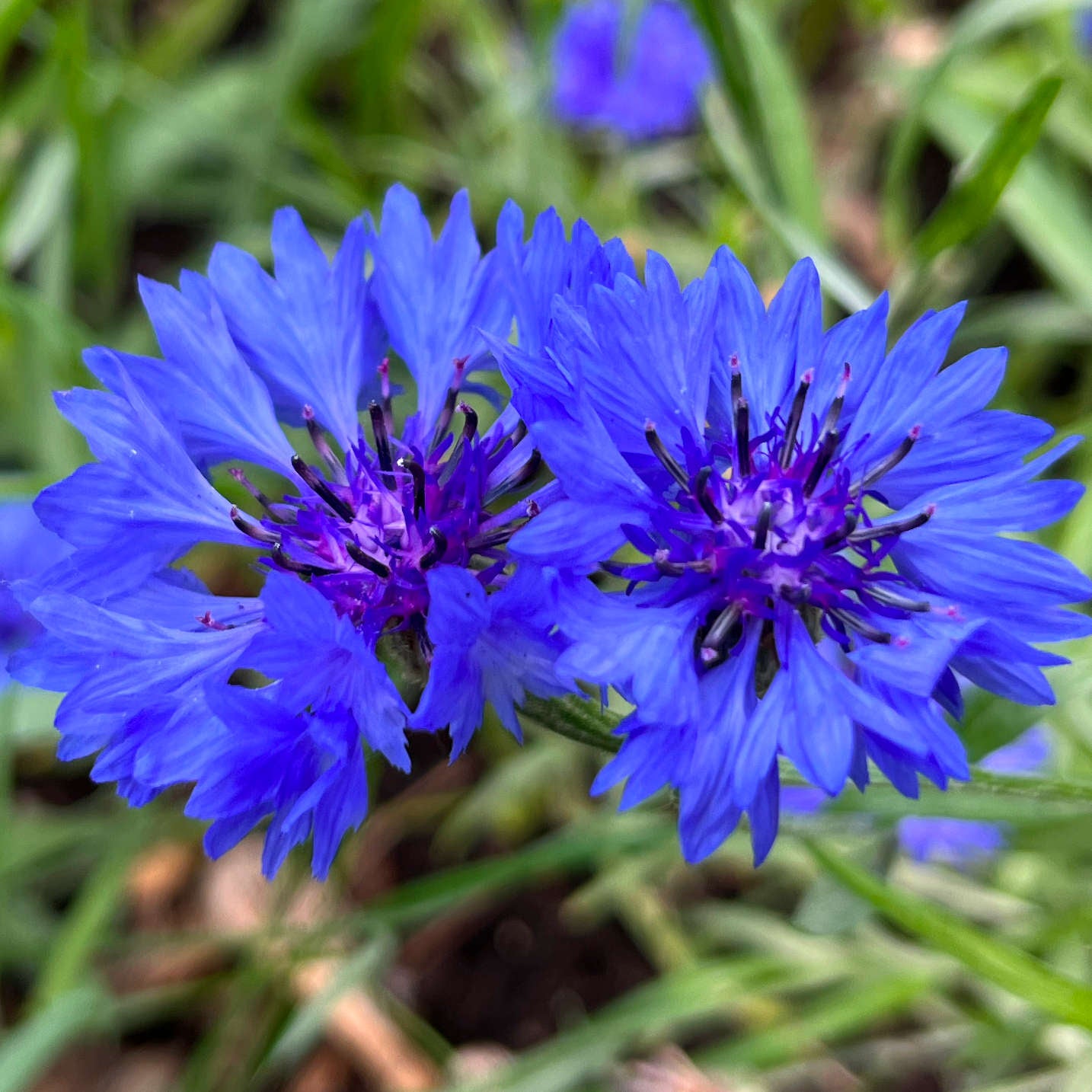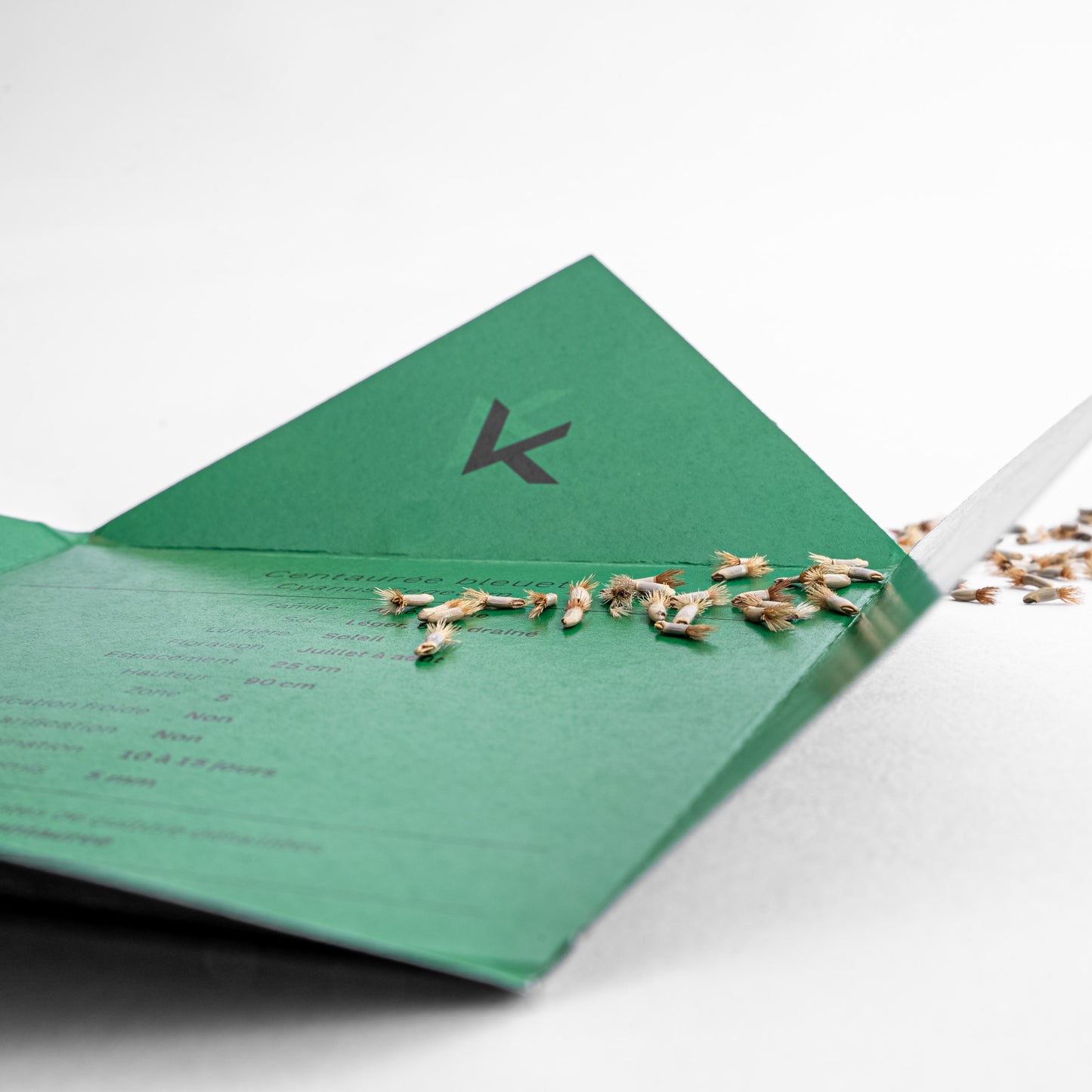This site is protected by hCaptcha and the hCaptcha Privacy Policy and Terms of Service apply.
For successful seedlings,
see the growing notes at the bottom of the page!
Cornflower (Centaurea cyanus) is an annual herbaceous plant that produces striking bright blue flowers on tall, slender, gray-green stems, reaching up to 90 cm in height. These stems are slightly hairy, and the leaves are narrow, elongated, and gray-green. Highly valued in wildflower garden designs, cornflower is also an excellent addition to vegetable gardens, where it attracts a variety of pollinators, including butterflies, bees, and other beneficial insects. By the end of the season, its ripe seeds attract goldfinches, further enhancing garden biodiversity. Cornflower thrives in well-drained soils and full sun, and easily adapts to moderate conditions, making it a perfect choice for naturalistic gardens in Quebec.
Medicinal and Culinary Uses
The young shoots are edible, and its fresh blooms can be used to add a splash of colour and freshness to salads. The flowers also contain an edible blue dye, which can be used to colour sugar and confections. In cosmetics, cornflower is recognized for its hydrating and soothing properties. Infusions made from the flowers are traditionally used in compresses to relieve tired eyes and reduce dark circles. Flower oil infusions can be incorporated into lotions, creams, or soaps for their moisturizing and softening benefits.
Ecological Roles
Cornflower plays a crucial role in Quebec’s ecosystems as a key plant for pollinators. Its nectar-rich flowers attract bees, butterflies, and other pollinating insects throughout the summer. At the end of the flowering period, its seeds provide food for seed-eating birds such as goldfinches, supporting the local food chain. By promoting biodiversity in gardens and fields, cornflower is particularly beneficial in agricultural systems, where it helps maintain a natural balance of insect populations.
Akène cannot assume any responsibility for the use of plants for therapeutic purposes. Always seek advice from a professional before using a medicinal or edible plant.
Sowing and Growing
Technical Details
Seeds per packet: 60
Family: Asteraceae
Scientific name: Centaurea cyanus
Life cycle: Self-seeding annual
Hardiness zone: 5
Soil type: Silty
Soil moisture level: Dry to medium
Soil - additional attributes: Well-drained
Light: Sun
Blooming: July to August
Spacing: 25 cm
Height: 90 cm
Deer resistance: High
Stratification: No
Scarification: No
Germination time: 10 to 15 days
Sowing depth: 5 mm





